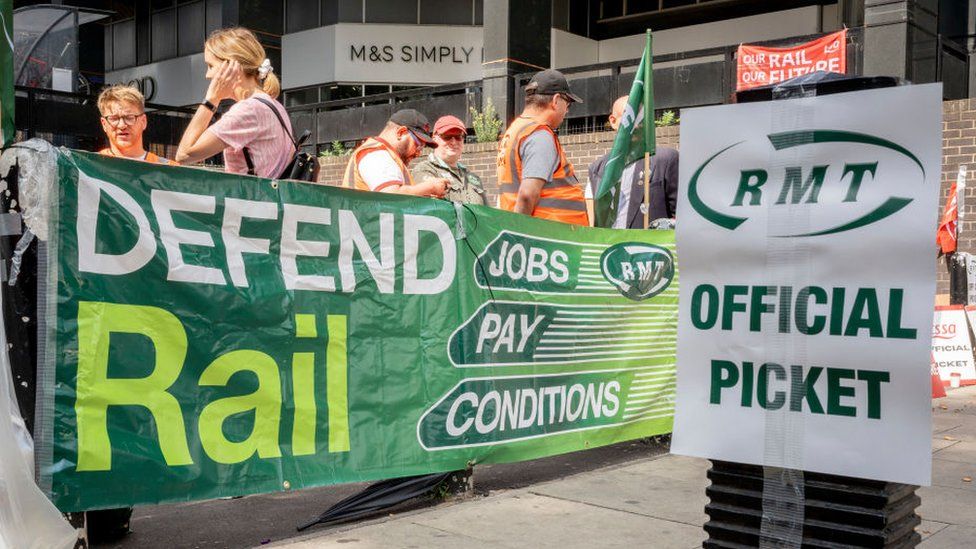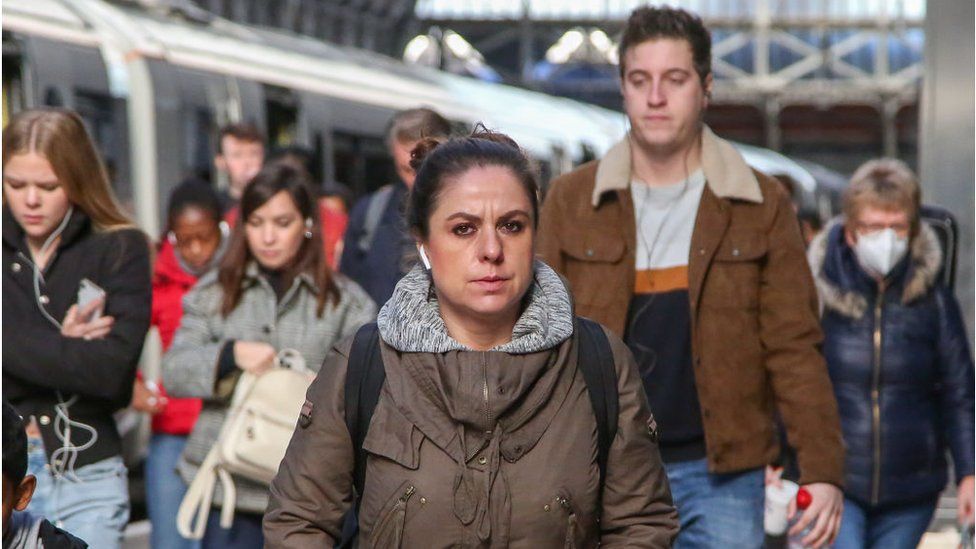
RMT members are to vote on a pay deal that could halt the union’s current wave of industrial action against train companies.
Operators have put forward an offer that proposes backdated pay rises for staff and job security guarantees.
RMT boss Mick Lynch said he supported the deal, calling it a “welcome development”.
However, further negotiations will be required to thrash out proposed reforms to the railways.
A separate dispute with train drivers in the Aslef union also remains ongoing, so walkouts over Christmas could still be possible.
The RMT’s dispute with rail companies has been going on for nearly 18 months already, with workers calling for better job security, pay and conditions.
Last month members voted for a new six-month strike mandate, meaning the threat of action over Christmas and into spring.
After talks between the union and the Rail Delivery Group (RDG), which represents operators, a so-called memorandum of understanding (MOU) has been developed which sets out a mutually-agreed way forward.
The BBC understands the MOU involves a backdated pay rise for 2022 of 5%, or £1,750, and job security guarantees such as no compulsory redundancies until the end of 2024.
A second year’s pay rise would still depend on reforms being negotiated at local level.
The Rail Delivery Group, which represents operators, said: “If accepted, this MOU will terminate the national dispute mandate, creating a pause and respite from industrial action over the Christmas period and into spring next year, while allowing for these important negotiations on proposed reforms to take place.”
RMT members will now vote on the deal in an online referendum which closes on 30 November. It is the first deal they have voted on since the start of the dispute.
The Department for Transport called the deal “fair and reasonable” and said it marked “a positive step towards resolving this dispute”.
RMT members, including guards and ticket office staff, who work at 14 train companies have taken part in a series of national strikes since June 2022 in the long-running dispute.
Coinciding with walkouts by train drivers, the strikes have brought much of the rail network to a standstill and disrupted major sporting events and music festivals.
A separate RMT dispute with Network Rail – which manages the UK’s rail infrastructure – was resolved in March this year after signallers and maintenance workers voted to accept an offer.
Related Topics
- Department for Transport
- RMT
- Strike action
-
Rail workers vote for six more months of strikes
-
19 October

-
-
Rail workers announce new weekend train strikes
-
11 August

-





